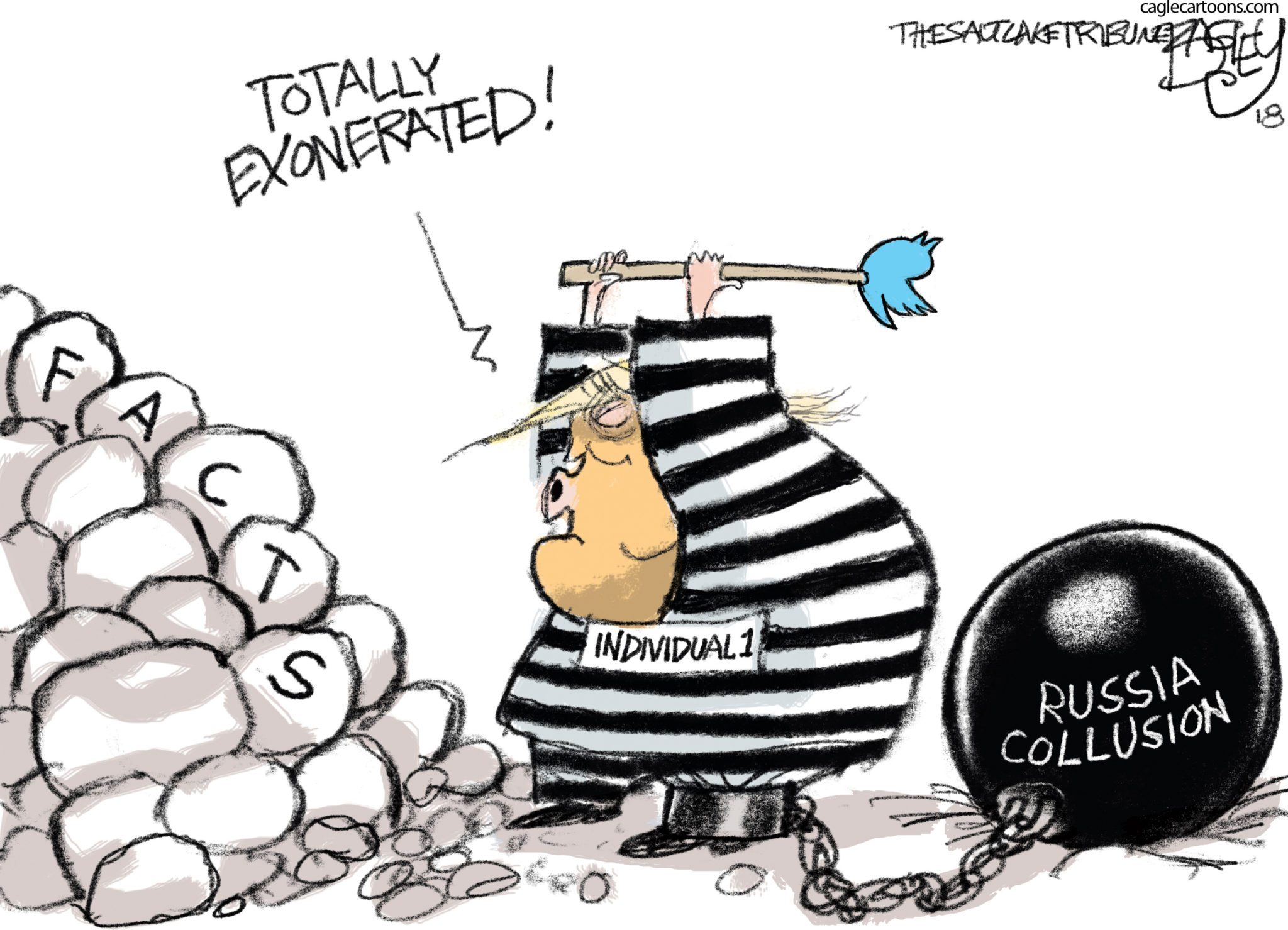BY JOE CONASON
 Sometime during the coming year, Americans are almost certain to confront the question of whether to impeach Donald Trump. The facts that have emerged over the year just past raise grave suspicions about him, his actions and his fitness for office. And still more information will be set before us in the months ahead.
Sometime during the coming year, Americans are almost certain to confront the question of whether to impeach Donald Trump. The facts that have emerged over the year just past raise grave suspicions about him, his actions and his fitness for office. And still more information will be set before us in the months ahead.
For anyone who respects the Constitution and the democratic process, this is a troubling prospect. Those who can recall the Clinton impeachment will remember how many of us felt that the House majority, led by Newt Gingrich, was a gang of hypocrites railroading a Democratic president for strictly partisan reasons. While they delivered lofty speeches proclaiming “the rule of law,” their conduct and motives provoked widespread doubt.
More than a few Republicans now regret the vote to impeach Bill Clinton, less for any principled reason than because the whole thing blew up in their faces. The Republican Party suffered a shocking midterm defeat, Gingrich was thrown out as speaker, and Clinton’s popularity soared.
At the moment, it isn’t at all certain that impeaching this president will achieve more success than the previous fiasco. Right now, the likelihood of winning a Senate trial to remove Trump, which would require at least 20 Republican votes for conviction, seems much more remote than removing Clinton was in 1999.
So nobody should treat impeachment lightly, even though Trump lost the 2016 popular vote by millions and his electoral victory has been deeply tainted by possible Russian interference. The House Democratic leadership, from Speaker-in-waiting Nancy Pelosi to the incoming Judiciary Committee chair Jerrold Nadler and his colleagues, always discuss this looming problem with appropriate circumspection. While various pundits warn the Democrats against rushing to impeach, they don’t sound eager to go there at all.
Facts are very stubborn things, however, and even without additional evidence from the special counsel’s investigation, what we know about Trump today is tantamount to the constitutional definition of “high crimes and misdemeanors.”
In their prosecution of his former attorney Michael Cohen, Justice Department lawyers have clearly found copious evidence that “Individual 1,” also known as POTUS, committed felonies during his campaign. While his current lawyer Rudolph Giuliani insists that those weren’t “big crimes,” the Republicans used to tell us that nobody, not even the president, is above the law. [That is a view they’ve evidently revised.]
Anyway, the offenses arising from Trump’s payoffs to his ex-paramours are merely the appetizers on a potential bill.
With the aid of his grasping offspring, Trump has repeatedly violated the Emoluments Clause of the Constitution, which forbids their constant efforts at self-enrichment. Having insisted on keeping ownership of the Trump Organization business, he profits illegally whenever a foreign government rents a Trump hotel, grants a trademark to his company or approves a Trump-branded project.
More important, there is every reason to expect that Robert Mueller and his prosecutors will reveal more and worse before their investigation concludes. Yet the evidence already before us is serious enough.
It is clear that son Donald Jr. met with a delegation of Russians in June 2016 to discuss how they could steer the election to Trump’s advantage – and that as president, Trump himself lied publicly while also directing others to lie about that meeting. It is equally clear that Trump fired FBI director James Comey and subsequently undertook other overt acts to obstruct the Russia investigation. He told the Russians in the Oval Office why he fired Comey and then said so again on national television.
According to the Republican definition of impeachable offenses, mounted against Clinton by Kenneth Starr and his prosecutors, including Trump’s own Supreme Court choice Brett Kavanaugh, the above list is enough to warrant Congressional action. The impeachment brief against Clinton cited obstruction of justice, with far less persuasive proof, and included lying to the public as well as lies under oath. [Although unlike Clinton, Trump refused to appear before the grand jury, he may well have lied in his written answers to Mueller’s questions.]
The grim truth is that Democrats will have little choice but to commence impeachment hearings against Trump soon after Mueller delivers his report. Should Trump somehow contrive to kill the Russia investigation or bury the report, those acts will only cap the existing list of offenses. Whatever vital legislation the new majority may propose – infrastructure plans, health care reforms, voting protections – they can’t avoid the constitutional responsibility to hold Trump accountable.
Even if his removal now seems remote, impeachment proceedings in the House will serve a crucial purpose, simply by laying out all the evidence. Every legislator will have no choice but to judge him on those facts, as the world watches.
Then history will judge them, too.
– Joe Conason’s columns appear regularly in The Oklahoma Observer
Creators.com








